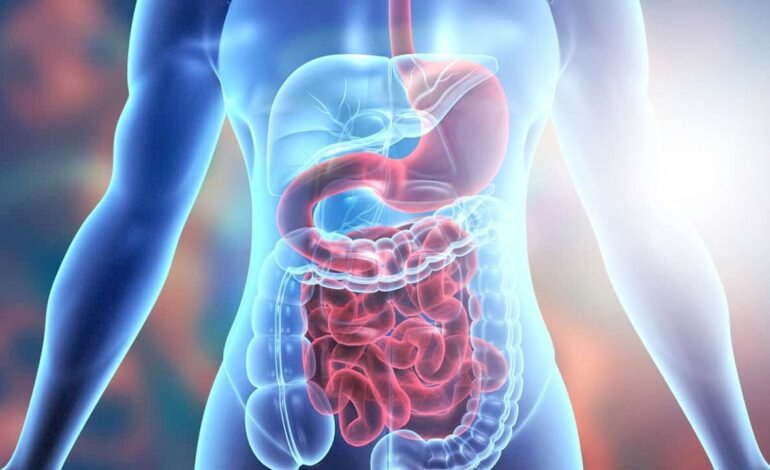
how to take care of your digestive system: Healthy Habits & Foods for good Life
Mar 21, 2025
Taking care of your digestive system is essential for overall health and well-being. A well-functioning digestive system ensures that your body absorbs the nutrients it needs, eliminates waste efficiently, and avoids issues like bloating, discomfort, or more serious digestive disorders.
Eat a Balanced, Fiber-Rich Diet
- Fiber: Include plenty of fruits, vegetables, whole grains, and legumes in your diet. Fiber helps keep things moving in your digestive tract, preventing constipation and supporting gut health.
- Prebiotics and Probiotics: Foods like yogurt, kefir, sauerkraut, kimchi, and other fermented foods are rich in probiotics, which help maintain a healthy balance of gut bacteria. Prebiotics, found in foods like garlic, onions, and bananas, help feed these good bacteria.
- Hydrate: Drink plenty of water throughout the day to keep your digestive system well-lubricated. This helps food move through your digestive tract and prevents constipation.
Eat Smaller, More Frequent Meals
- Avoid large, heavy meals: Eating smaller meals throughout the day can ease the burden on your digestive system. Large meals can lead to indigestion and discomfort.
- Chew thoroughly: Take your time to chew food properly. This helps break down food before it reaches your stomach, allowing your digestive enzymes to do their job more effectively.
Stay Active
- Exercise: Regular physical activity helps promote regular bowel movements and reduces the risk of constipation. Aim for at least 30 minutes of moderate exercise most days of the week.
- Post-meal walks: A short walk after eating can help promote digestion and prevent bloating or discomfort.
Limit Processed Foods
- Minimize junk food: Highly processed foods, sugary snacks, and fatty foods can disrupt your gut health and contribute to digestive issues. Try to avoid or limit foods that are high in sugar, artificial additives, and unhealthy fats.
- Eat whole foods: Focusing on fresh, unprocessed foods helps ensure you’re getting the nutrients your digestive system needs to function optimally.
Manage Stress
- Stress and digestion: Chronic stress can negatively affect your digestive system, leading to issues like irritable bowel syndrome (IBS), acid reflux, and indigestion.
- Relaxation techniques: Practice mindfulness, meditation, deep breathing exercises, or yoga to manage stress and promote a calm digestive environment.
Avoid Overuse of Certain Medications
- Be cautious with antibiotics: While antibiotics are necessary for treating infections, overuse or misuse can disrupt the balance of bacteria in your gut. Always follow your healthcare provider’s instructions and avoid taking antibiotics unless absolutely necessary.
- Limit over-the-counter antacids: Regular use of antacids can interfere with stomach acid, which is essential for breaking down food and killing harmful bacteria. If you rely on antacids frequently, consult with your doctor to identify the root cause of your digestive issues.
Eat Mindfully
- Avoid eating too quickly: Eating too quickly can cause indigestion and bloating. Try to eat slowly, savoring each bite and allowing your body time to signal when it’s full.
- Avoid overeating: Eating large portions can overwhelm your digestive system and lead to discomfort, bloating, and indigestion. Try to listen to your body and stop eating when you feel satisfied, not overly full.
Avoid Smoking
- Smoking and digestion: Smoking damages the digestive system by reducing the production of saliva and enzymes, leading to issues like acid reflux, ulcers, and even a higher risk of colon cancer. Quitting smoking is one of the best things you can do for your digestive health.
Stay on Top of Digestive Health Concerns
- Listen to your body: Pay attention to symptoms like persistent bloating, diarrhea, constipation, or abdominal pain. These could be signs of an underlying digestive issue such as IBS, celiac disease, or acid reflux.
- Seek medical advice: If you’re experiencing chronic digestive problems, it’s important to consult with a healthcare provider for proper diagnosis and treatment.
Avoid Overindulging in Alcohol
- Alcohol and digestion: Excessive alcohol can irritate the digestive tract, leading to acid reflux, ulcers, and digestive discomfort. If you drink alcohol, do so in moderation.
By adopting these habits, you can maintain a healthy digestive system, reduce the risk of digestive issues, and enhance your overall well-being. Your digestive health is key to feeling energetic, comfortable, and vibrant!



